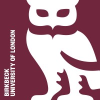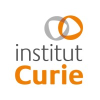PhD Position F/ M Explainable and frugal audio scene description
Contexte et atouts du poste
Inria Défense&Sécurité (Inria D&S) was created in 2020 to federate Inria’s actions for the benefit of military forces. The PhD will be carried out within the audio processing research team of Inria D&S, under the supervision of Jean-François Bonastre and co-supervised by Raphaël Duroselle.
The automatic audio scene description task is to present operators with a summary of the information present in the scene, in the form of augmented text. This text provides a visual summary of the most important information, while efficiently structuring access to specific information. Here is an illustrative example of a summary: « This five-minute recording features three different speakers. Speaker A corresponds to a known identity in the database and speaks French with a strong Monawa accent, speakers B and C are unknown in the database and speak English in their interactions with A and use an unidentified language when talking to each other. The voices of B and C show strong similarities with speakers from the Eastern Quabar region. The main theme of the recording concerns a transfer of goods between the cities of Orienta and Flagrance. The date July 8, 2023 is mentioned three times.». Clicking on A gives the operator information about A and details of the voice identification performed. There will be direct access to the time segments during which A spoke and to their transcription. The transcription will highlight names of people, places or dates (named entities).
Mission confiée
Goal
The aim of this thesis is to propose a general framework for processing audio recordings for intelligence purposes. It consists in defining a high-level application adapted to the needs of end users, favouring the presentation of a recording in the form of a summary report to highlight its salient points.
Approach
This approach is inspired both by textual description of video scenes [1] and by dialogue systems based on audio-visual scenes [2]. The system will be based on the extraction of speech signal representations at different scales (frame, speech segment or sound event, complete recording), possibly dedicated to different tasks. The representations, useful for the various technological bricks of the system, will be embeddings extracted from deep neural networks, either generic [3] or dedicated to each task. The fusion between the different levels of information can be achieved with an architecture inspired by the multi-stream "Encoder-Decoder" scheme [4], with several encoders producing sequences of representations and one or more decoders performing the tasks or sub-tasks required by the system. One of these decoders will produce a textual summary of the scene.
Potential research directions, aiming to go beyond an audio scene description system by assembling existing bricks, can be discussed and refined with the candidate.
Principales activités
Compétences
Master level in computer science, mathematics or phonetics.
Strong interest in applied research.
Written and spoken English
Signal processing
Machine learning and deep learning
Experience with deep learning toolkits such as pytorch or keras
Speech processing experience, knowledge of open source toolkits such as kaldi or speechbrain.
References
[1] Aafaq, N., Mian, A., Liu, W., Gilani, S. Z., & Shah, M. . Video description: A survey of methods, datasets, and evaluation metrics. ACM Computing Surveys (CSUR), 52, 1-37.
[2] Hori, Chiori, Huda Alamri, Jue Wang, Gordon Wichern, Takaaki Hori, Anoop Cherian, Tim K. Marks, et al. « End-to-End Audio Visual Scene-Aware Dialog Using Multimodal Attention-Based Video Features ». In ICASSP 2019 - 2019 IEEE International Conference on Acoustics, Speech and Signal Processing (ICASSP), 2352‑56. Brighton, United Kingdom: IEEE, 2019. [3] Zhang, C., & Tian, Y. (2016, December). Automatic video description generation via lstm with joint two-stream encoding. In 2016 23rd International Conference on Pattern Recognition (ICPR) (pp. 2924-2929). IEEE.
[4] Pratap, Vineel, Andros Tjandra, Bowen Shi, Paden Tomasello, Arun Babu, Sayani Kundu, Ali Elkahky, et al. 2023. « Scaling Speech Technology to 1,000+ Languages ». arXiv.
Avantages
Rémunération











